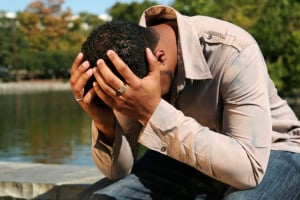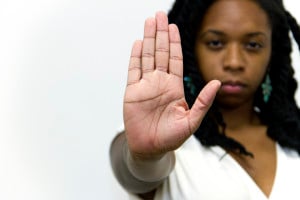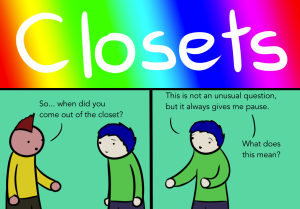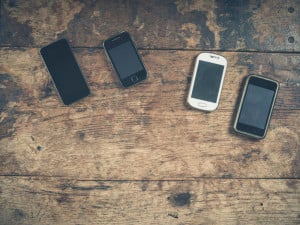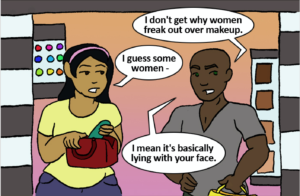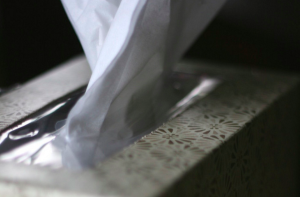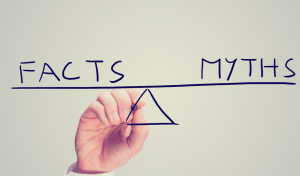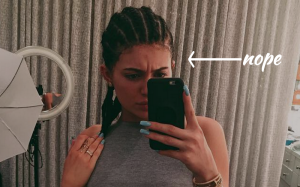Originally published on the Huffington Post and republished here with the author’s permission.
(Content Warning: Homophobia, suicide)
I tried it once. To say it in a different way, to say it in a different context than the one I had come to know it in.
“F*ggot.”
I have to admit I admired the way some of my gay friends owned the word, throwing it around like a casual term of endearment. I liked the flagrance, the defiance in finding joy in it, the way it tapped into the shitty, shared experience that held our community together.
So I tried it.
“F*ggot.”
I was at a gay bar with some friends in Washington, DC. No one was shocked that I said it. It went over just fine. But for me, inside, my little experiment had failed. I had expected to feel taller somehow in saying it, in seeing it without its fangs.
But instead, I just felt embarrassed.
It was as if I had just opened up some terrible, naked part of my life and shown it to complete strangers. As if they could see, in the way I had said it, the version of me that had been subjected to the word: the weak me, the powerless me, the vulnerable me.
“F*ggot.”
I only ever hear the word spoken above me, even if I’m the one saying it. I wasn’t in a gay bar when I first heard it. I wasn’t in a city. I didn’t have a computer or a Twitter account where I could discuss the nuances of it with LGBTQIA+ activists.
In fact, I had no community at the time. I was a closeted kid in rural Oklahoma, desperately trying to keep as much of me invisible as I could because I knew that being even slightly effeminate meant putting a target on my back.
I don’t know what an education in being gay looks like for the modern gay youth, but for me, here were my lessons: keep your head down, walk straight, talk straight, act as straight as you can because if they find you out, you’re screwed.
Unfortunately, I was found out.
“F*ggot.”
I heard it every single day. I think at some point I heard it more than I heard my own name, but that’s the intended purpose of the word. It names you.
It classifies you. It puts you in a category that is subhuman so that it can justify the abuse.
It’s like a virus in that way. It infiltrates you, overwhelms your defenses, and, if you go too long without help, it overtakes you until you’re not yourself anymore. You’re a “f*ggot,” and a “f*ggot” doesn’t have feelings, doesn’t have rights, doesn’t have agency.
Every day, I wanted to kill myself – and thinking about killing myself was the only thing that provided me relief because it reestablished a sense of agency in me, the illusion of control. I was alive. I had a life. I knew this to be true because I could end my life at any moment.
“F*ggot.”
That’s the price of the word. Agency. And in the quest for the agency that’s been lost, is it any wonder, then, that some people would find it again in the word? In a place where it was taken away?
I can’t fully advocate for not saying the slur because I recognize that, for some people, this is how they retrieve what was stolen. This is how they know the word can’t hurt them anymore. It’s theirs, in their employ, and in this way they’ve ensured no one can use it against them anymore. Not in the same way. Never again.
For me, with this debate, I don’t advocate using or not using the word. Instead, I advocate agency. I advocate control.
I advocate people who’ve had that word wielded against them reasserting themselves into whatever position they need to be in to feel strong and protected.
But we have to be respectful.
“F*ggot.”
We all have a different history with it. We all carry a different kind of pain with it. Some have never had it used to hurt them and others have. Some consider it really no big deal, and for some, like me, the word gets caught in their throats, rattles their nerves, and puts them back in the shoes they wore the first time they ever felt it in their gut.
I don’t hold the word in my hands the way some of my friends do. But that doesn’t mean that I’m weak or that I have something I need to reclaim.
For some, agency looks like the power to use the word free of fear.
For me, it’s having the power to ask to not have to hear it, and being respected enough to have that request acknowledged.
[do_widget id=’text-101′]
John Paul Brammer is a writer, blogger, and activist from Oklahoma. His work has been featured in This Land Press and the Advocate. He frequently writes on the topics of LGBT activism and his Mexican-American background.
Search our 3000+ articles!
Read our articles about:
Our online racial justice training
Used by hundreds of universities, non-profits, and businesses.
Click to learn more
Most Read Articles
- « Previous
- 1
- …
- 30
- 31
- 32


